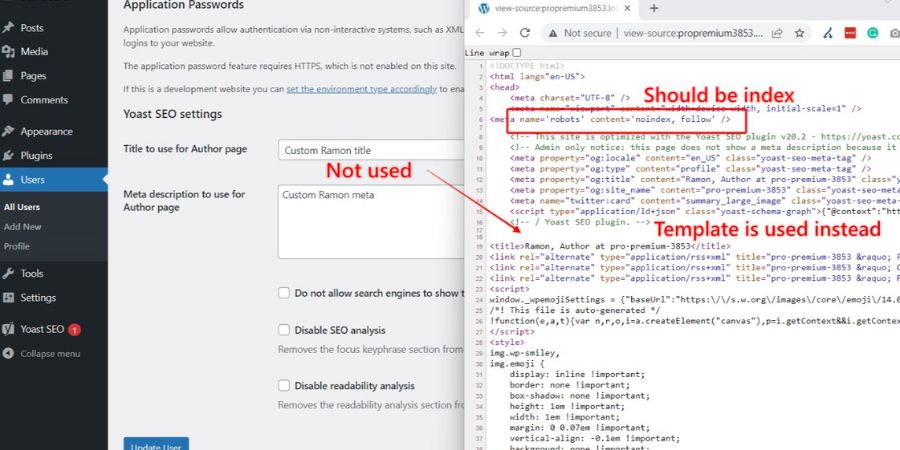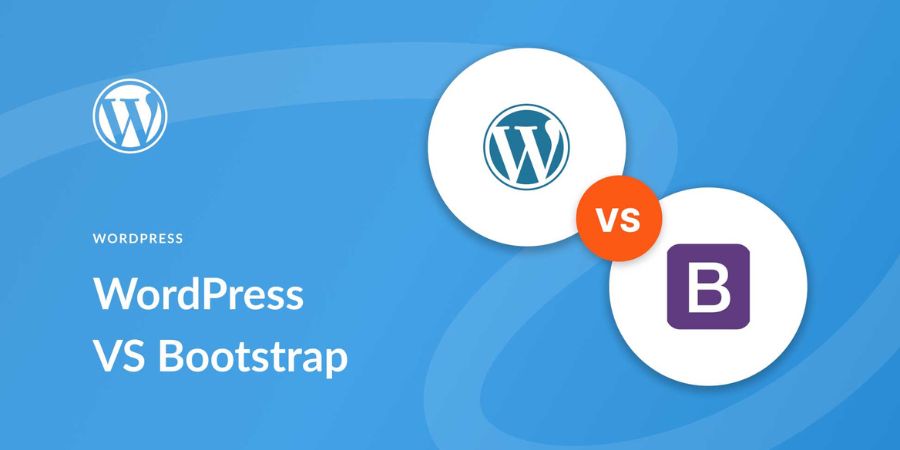Building a website requires careful planning, especially when deciding between custom website development and WordPress. Both options come with unique features, costs, and benefits. In this guide, we’ll explore the advantages, limitations, and costs of custom development versus WordPress to help you determine which option aligns with your business goals. Whether you want a fully customized site or a budget-friendly solution, this breakdown will guide you in making an informed decision.
Custom Website Development: Understanding the Cost and Benefits
Custom website development involves creating a site from scratch, tailored to meet the specific needs of your business. It is a popular choice for companies that need unique features or have advanced functionality requirements that pre-made templates cannot fulfill.
Advantages of Custom Development:
- Complete Customization: Custom websites allow you to design every aspect, from layouts and colors to features and functionalities, ensuring a unique, branded look.
- Scalability: Custom sites can grow with your business, enabling you to add features or make updates without constraints imposed by templates.
- Higher Security: With a custom-built site, developers can incorporate advanced security measures, reducing vulnerability to hacks and data breaches.
Drawbacks of Custom Development:
- Higher Initial Investment: Custom development can be costly, ranging from $5,000 to $50,000 or more depending on complexity, and may require ongoing development work.
- Time-Consuming Process: Building a custom site takes longer, as each component needs to be designed, developed, and tested.
WordPress: Popular and Budget-Friendly Solution
WordPress powers over 40% of websites globally due to its flexibility, ease of use, and cost-effectiveness. With thousands of themes and plugins available, WordPress can support a range of website types, from blogs and portfolios to small e-commerce sites.
Advantages of WordPress:
- Affordable Setup and Maintenance: WordPress offers a low-cost setup, with many free and affordable premium themes and plugins, making it accessible for most budgets.
- User-Friendly Interface: WordPress requires little technical knowledge, allowing anyone to make updates, manage content, and add new features with minimal effort.
- SEO-Friendly: WordPress includes built-in tools and plugins, like Yoast SEO, that help optimize websites for search engines, making it easier to increase visibility.
Drawbacks of WordPress:
- Limited Customization for Complex Sites: While WordPress offers flexibility, highly customized designs and features may require advanced coding or paid plugins.
- Potential Security Risks: With WordPress, you must frequently update plugins and themes to avoid security vulnerabilities, as outdated plugins are often targeted by hackers.
Custom website development involves creating a website specifically tailored to meet a business’s needs and goals. Unlike template-based websites that use pre-designed layouts, custom websites are built from scratch, giving you full control over every detail. This means you can design a site that reflects your brand identity
Custom Development vs. WordPress: Comparing Costs
| Feature | Custom Development | WordPress |
| Initial Cost | $5,000 – $50,000+ | $100 – $500 for setup |
| Maintenance | Higher due to custom support | Lower, with optional plugin and theme updates |
| Scalability | Highly scalable with advanced customization | Scalable but may need a developer for complex setups |
| Customization | Full control over every aspect | Limited by themes and plugins, unless customized |
| Security | Higher, with tailored security measures | Vulnerable to plugins; needs regular updates and plugins |
Choosing Based on Scalability and Long-Term Vision

Custom Development for Long-Term Goals: For businesses planning to scale and add advanced functionalities, custom development provides a robust foundation. If you envision complex features like dynamic pricing, custom integrations, or advanced analytics, custom development might be a better choice.
WordPress for Initial Growth and Easy Management: If your website requirements are less complex or if you’re looking for a quick launch, WordPress is an excellent choice. It provides a streamlined interface, extensive plugins, and theme options that support easy growth.
Customization Flexibility
Custom Development:
With custom development, your website can be molded to fit any vision you have. Designers and developers create each component based on your requirements, allowing a high degree of control and ensuring that the design reflects your brand’s uniqueness.
WordPress:
Although WordPress offers a wide variety of themes, customization is limited to the theme’s structure. For additional flexibility, premium themes or custom-coded adjustments may be required. Plugins also add functionality but may not provide the same seamless experience as a custom-built site.
Security Considerations for Each Option
Custom Development:
Security is often stronger in custom-built websites. Developers can design custom security features that limit vulnerabilities. Furthermore, with fewer external plugins, the risk of malware or hacking attempts decreases.
WordPress:
WordPress security relies on regularly updating plugins and themes, as vulnerabilities can arise from outdated plugins. Security plugins are available to help safeguard against attacks, but a proactive approach to updates and plugin management is essential.
SEO Capabilities and Performance
Custom Development:
Custom websites offer SEO flexibility as developers can implement detailed SEO features, from unique URLs and meta descriptions to custom structured data. This enables advanced optimizations for search engines.
WordPress:
WordPress’s popularity in SEO comes from plugins like Yoast SEO, which make it easy for beginners to implement SEO practices. However, implementing some advanced SEO techniques may require a developer’s assistance.
Time and Effort Required for Setup
Custom Development:
Building a custom site is more time-consuming, typically requiring several months depending on the complexity. The process includes design, development, and multiple rounds of testing, which can add to the timeline.
WordPress:
A WordPress site can often be set up in days or weeks, especially if a pre-made theme is used. Themes and plugins streamline the process, making WordPress a convenient option for quick launches.
Conclusion
Deciding between custom website development and WordPress depends on your business needs, budget, and long-term goals. Custom development is ideal for companies wanting a unique, fully optimized website with advanced features. It offers flexibility, control, and security but at a higher cost. WordPress, on the other hand, is budget-friendly, easy to manage, and SEO-ready, making it a great choice for small businesses and startups.
For a large, complex site with unique needs, custom development could be a worthwhile investment. If you’re focused on budget and ease of use, WordPress provides a balanced solution that can grow with your business.
FAQs
Q: What are the primary benefits of custom website development?
A: Custom development provides complete control, unique design, and strong security, ideal for complex sites that need specific features.
Q: Is WordPress cost-effective for new businesses?
A: Yes, WordPress is affordable, with many free and premium themes available, making it a great choice for startups.
Q: How secure is WordPress compared to custom websites?
A: WordPress is secure but relies on regular updates and plugins. Custom sites typically have dedicated security, reducing vulnerabilities.
Q: Can I switch from a WordPress site to a custom-developed site?
A: Yes, transitioning is possible but may involve significant work and costs, depending on site complexity.
Q: Which is better for SEO: WordPress or custom development?
A: Both are effective for SEO. WordPress includes plugins like Yoast SEO, while custom sites allow tailored, advanced SEO strategies.
Up Next, Don’t Miss: Vercel Stretch a Section




